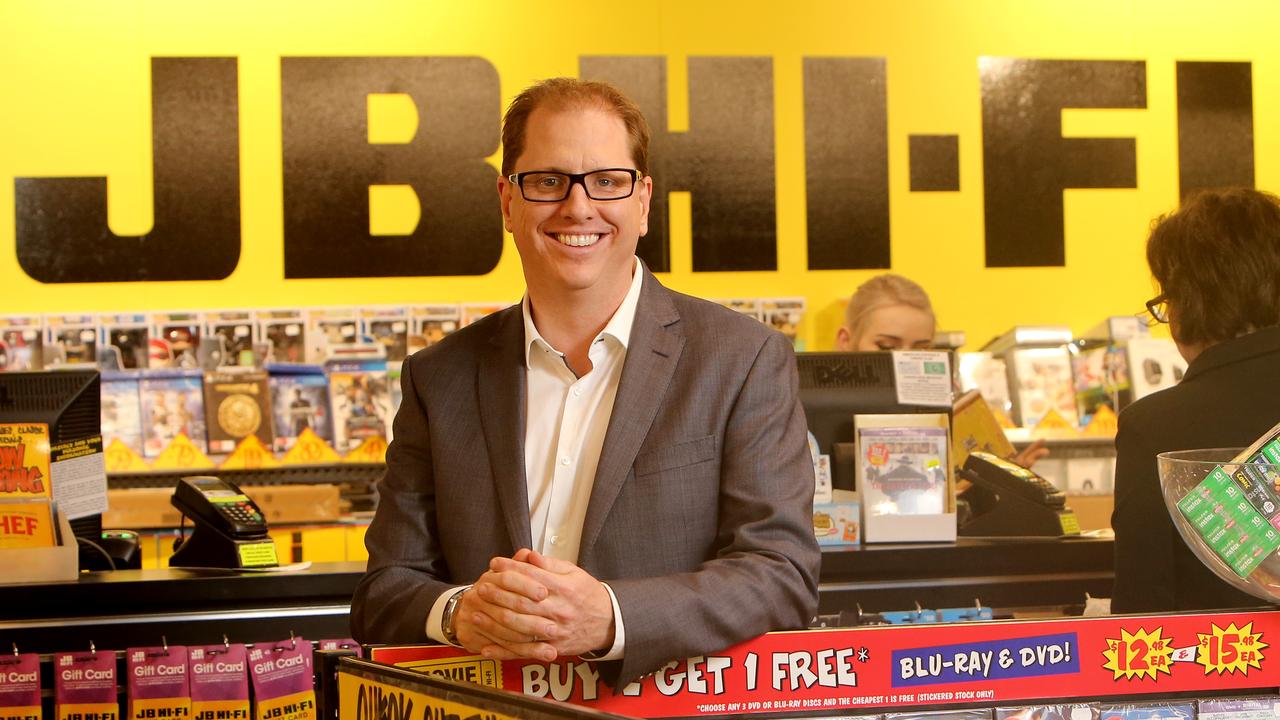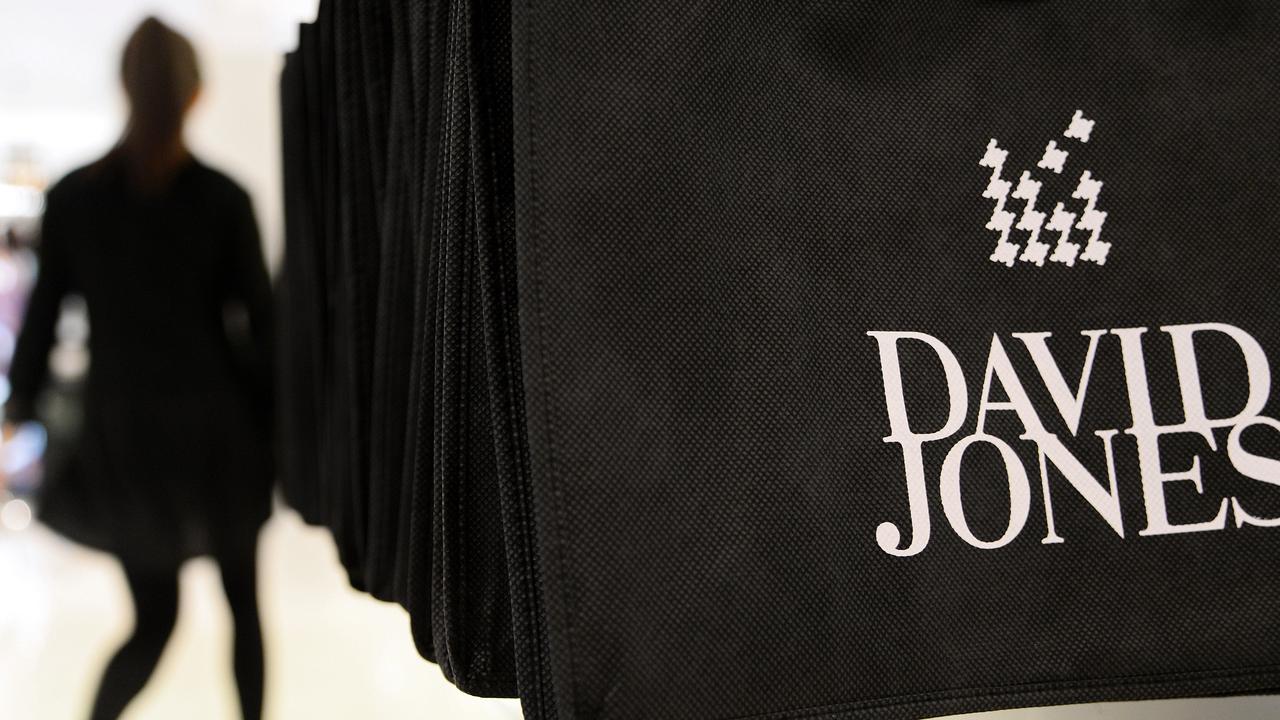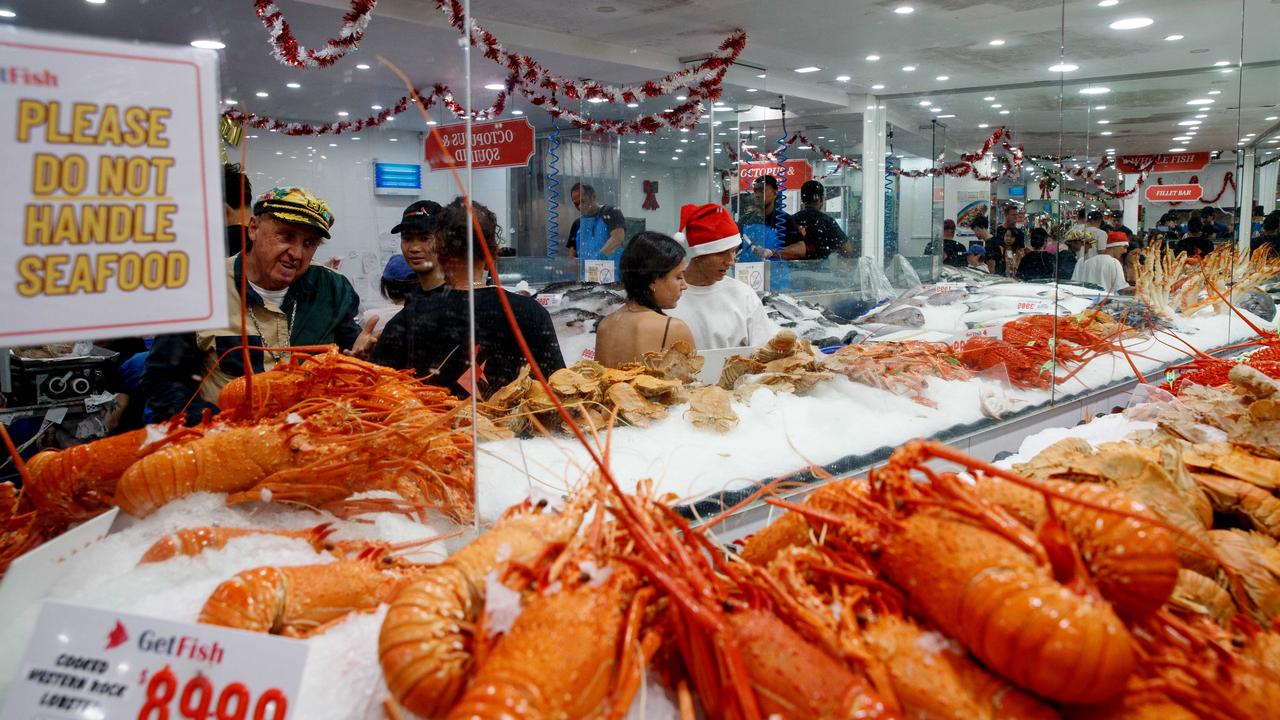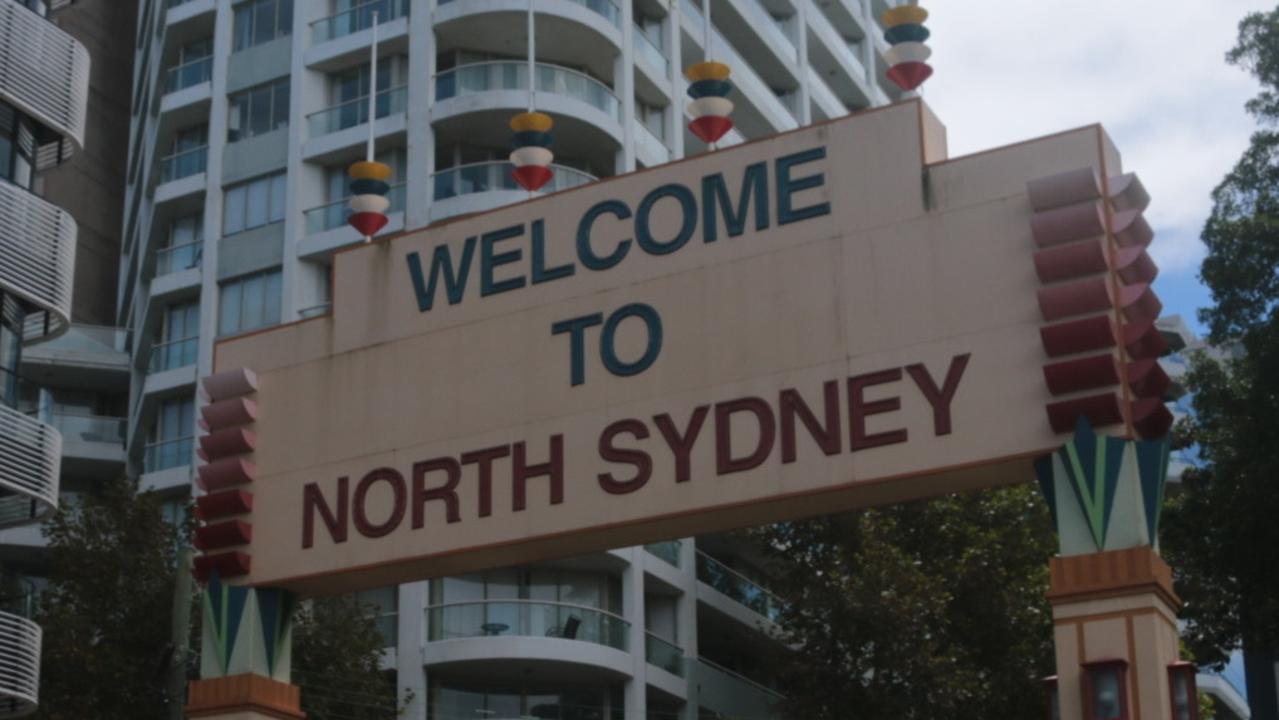JB Hi-Fi boss claims Myer, David Jones are ‘struggling for relevance’
David Jones blames its woes on a retail recession. But booming JB Hi-Fi says it’s just an excuse and DJs and Myer are “struggling for relevance”.

JB Hi-Fi chief executive Richard Murray has flatly denied Australia is in the grips of a retail recession, instead blaming the major department stores’ irrelevance for their own failings.
David Jones’ South African parent company Woolworths Holdings declared the national sector was in turmoil when it was forced to slash $437 million from its value earlier this month.
But JB Hi-Fi defied this narrative when it reported yesterday a 7.1 per cent lift to its annual net profit to $249.8 million, exceeding analysts’ forecasts.
Mr Murray cited business fundamentals as the key to being a good retailer: relevance, price and operating model.
“We’re not a department store and certainly department stores have their set of challenges at the moment; I wish them good luck,” he told news.com.au.
“Obviously we’re a smaller more agile model and, to date, that seems to be working well for us.”
RELATED: JB Hi-Fi’s profit up 7.1% to $250 million
RELATED: David Jones value cut by another $437 million
RELATED: Myer moves out of Melbourne’s Emporium
David Jones and Myer have blamed high rental costs as major factors weighing on its performances, but Mr Murray says size hasn’t been an issue for other retailers.
“Bunnings seems to make it work but the department stores are struggling,” he said.
“Kmart makes it work because they understand their customer and have their proposition right.
“We run our own race and time will be the judge (on whether there is a retail recession in Australia or not).
“It’s no secret that department stores are struggling for relevance at the moment in consumers’ minds.”

Queensland University of Technology retail expert Gary Mortimer agreed there was no downturn plaguing the Aussie sector and said such declarations were irresponsible for consumer confidence.
“It’s shortsighted to identify a supposed retail recession to justify the writedown of almost half a billion dollars worth of value on the DJ’s business,” he told news.com.au.
Prof Mortimer acknowledged sections of retail were subdued but said the profit result from JB Hi-Fi proved the sector was not in recession.
“Things like cafes, restaurants and dining appear to be trading reasonably well,” he said.
“Food and groceries are ticking on quite well, despite price deflation, and we are now seeing a lift in those categories that are more exposed to discretionary spending, such as consumer electronics.”
The $1080 tax break to small- and middle-income Australians seems to have encouraged spending over the past couple of months, Prof Mortimer said.
He also said the continuity of politics as a result of the May federal election was an added bonus to spending confidence.
“Once there’s stability in governance, consumers are more willing to make larger purchases including consumer electronics, possibly automobiles and certainly in housing,” the retail expert said.

Woolworths Holdings bought David Jones’ network of stores in 2014 for $2.1 billion as part of chief executive Ion Moir’s plan to turn the company into a leading southern hemisphere retailer.
But the value of the beleaguered department store chain has shrunk to $965 million.
The writedown earlier this month, the second since 2018, frames a bleak picture for department store operators around the world as shoppers opt for broader product ranges from global online players such as Amazon.
In response to the changing trends, David Jones beefed up its online offering, cut costs and store space and refurbished its Elizabeth St flagship store in Sydney, which will introduce exclusive brands in clothing, footwear and lingerie.
The company said it would take a loss of $437.4 million from David Jones, reducing the valuation of the department chain to about $965 million.
“This writedown reflects sustained and unprecedented economic pressures and structural changes in the Australian market,” a Woolworths Holdings spokeswoman said.
“The retail sector in Australia is currently in recession, and the Australian economy has slowed to its weakest level since the global financial crisis in 2009.”
Continue the conversation on Twitter @James_P_Hall or james.hall1@news.com.au




